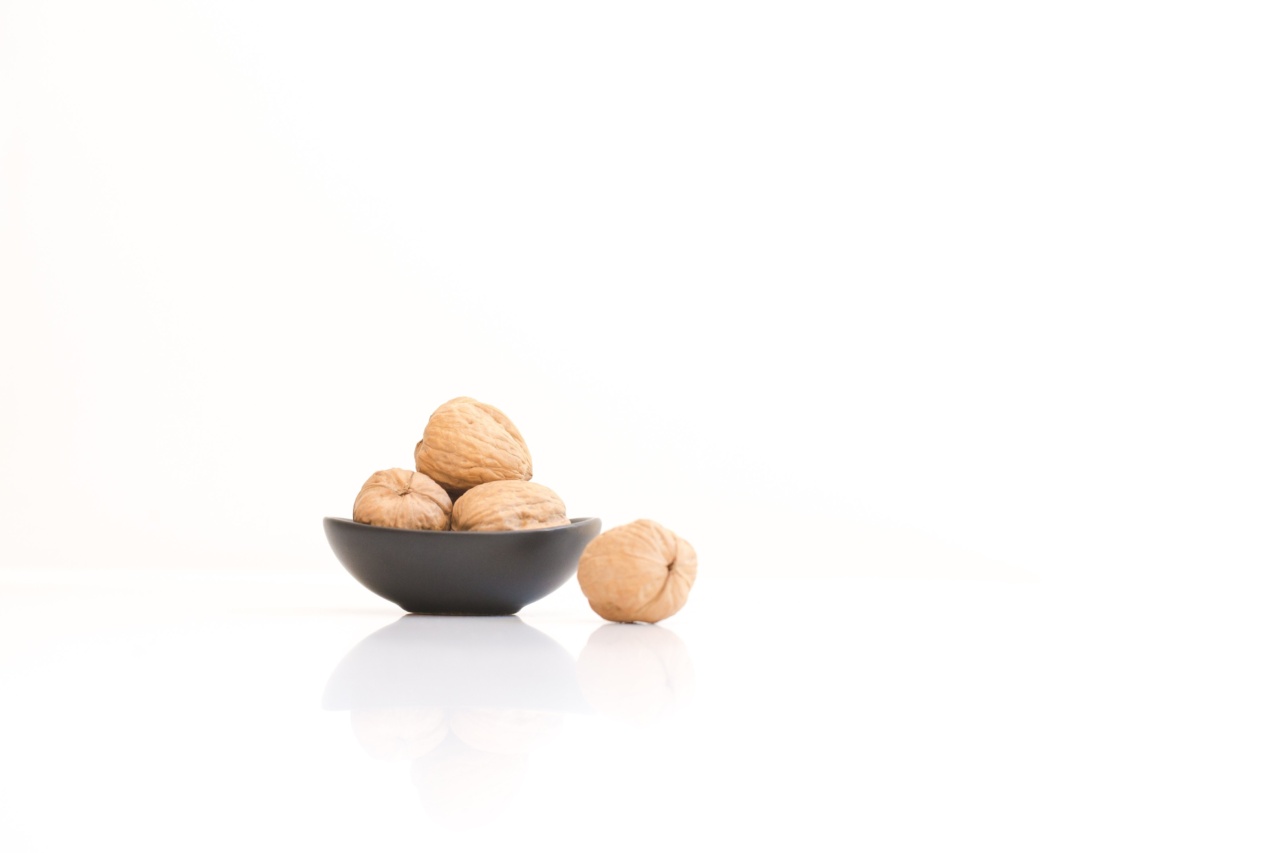When it comes to healthy eating, we often hear about various superfoods that can improve our overall well-being and offer numerous health benefits. One such remarkable food is the walnut.
Not only are they delicious and versatile, but they are also packed with essential nutrients that can have a positive impact on our health. Whether you enjoy them as a quick snack or incorporate them into your favorite dishes, here are some compelling reasons why you should make walnuts a regular part of your diet.
1. Excellent Source of Omega-3 Fatty Acids
Omega-3 fatty acids are essential fats that our bodies need but cannot produce on their own.
These fatty acids play a crucial role in brain health and have been linked to a multitude of benefits, such as reducing inflammation, improving heart health, and supporting optimal brain function. Walnuts are one of the best plant-based sources of omega-3 fatty acids, making them an excellent choice for those seeking to increase their intake.
2. Heart Health Benefits
Heart disease remains one of the leading causes of death worldwide. However, incorporating walnuts into your diet can significantly contribute to maintaining a healthy heart.
These nutrient-dense nuts contain high levels of antioxidants and healthy fats that can help reduce LDL cholesterol levels and improve overall heart health. Research has shown that incorporating walnuts into a heart-healthy diet can lower the risk of heart disease and may even help manage certain conditions, such as high blood pressure.
3. Antioxidant Powerhouse
Walnuts are rich in antioxidants, which are compounds that help protect our cells from damage caused by harmful molecules called free radicals.
Antioxidants play an integral role in our overall health by neutralizing these free radicals and preventing oxidative stress.
Including walnuts in your diet can provide you with a wide array of antioxidants, including polyphenols, melatonin, and vitamin E, which have been linked to various health benefits, including reduced inflammation and a lower risk of chronic diseases such as cancer.
4. Brain Boosting Potential
Did you know that the shape of a walnut resembles a little brain? Coincidentally, walnuts are also good for brain health! These nuts are rich in antioxidants, essential fatty acids, vitamins, and minerals, all of which are crucial for optimal brain function. Regularly consuming walnuts has been associated with improved cognitive function, better memory, and a lower risk of neurodegenerative diseases, including Alzheimer’s.
So, if you’re looking to give your brain a boost, consider adding walnuts to your diet.
5. Weight Management Aid
For those aiming to maintain a healthy weight or shed a few pounds, walnuts can be an excellent addition to your diet plan. Despite their relatively high calorie and fat content, walnuts have been linked to weight management and even weight loss.
They are packed with a combination of healthy fats, protein, and fiber, all of which help you feel fuller for longer. The fiber in walnuts also aids in digestion and can regulate appetite, making them a satisfying and nutritious snack option.
6. Supports Digestive Health
Walnuts are not only beneficial for brain and heart health but also for our digestive system. They are an excellent source of dietary fiber, consisting of both soluble and insoluble fiber.
This fiber content helps regulate bowel movements, prevent constipation, and promote a healthy gut by nourishing beneficial gut bacteria. Including walnuts in your diet can enhance your overall digestive health and contribute to a healthy gut microbiome.
7. Essential Nutrients in Abundance
Walnuts aren’t just a good source of healthy fats; they are also packed with essential nutrients. These include vitamins such as vitamin E, folate, and B vitamins, as well as minerals like magnesium, copper, and manganese.
These nutrients are crucial for various bodily functions, including energy production, immune health, and the formation of collagen. Adding walnuts to your meals or snacking on them can ensure you’re getting a nutritious boost to support your overall health.
8. Versatile and Delicious
One of the best things about walnuts is their versatility in the kitchen. They can be incorporated into a wide range of both sweet and savory dishes, adding a nutty flavor and satisfying crunch.
From salads and stir-fries to baked goods and homemade granola, the possibilities are endless. Walnuts can also be enjoyed on their own as a quick and convenient snack. So, whether you’re an amateur cook or a seasoned chef, walnuts are sure to be a delightful addition to your culinary adventures.
9. Simple and Convenient Snack
In today’s fast-paced world, having a healthy and convenient snack option is essential. Walnuts fit the bill perfectly. They come in a sturdy, portable package, making it easy to carry them in your bag or stash them in your desk drawer.
Whenever hunger strikes, indulge in a handful of walnuts for a quick energy boost and a satisfying dose of nutrients. They require no prep work, making them a convenient option for those on the go.
10. A Natural Booster for Your Recipes
If you’re looking for an easy way to elevate the nutritional value of your meals, look no further than walnuts.
Whether you sprinkle them over salads or oatmeal, blend them into smoothies, or incorporate them into your baking recipes, walnuts can add a delightful crunch and nourishing boost to any dish. Their versatility and nutritional profile make them a fantastic ingredient to experiment with and enhance the flavor and health value of your favorite recipes.




























